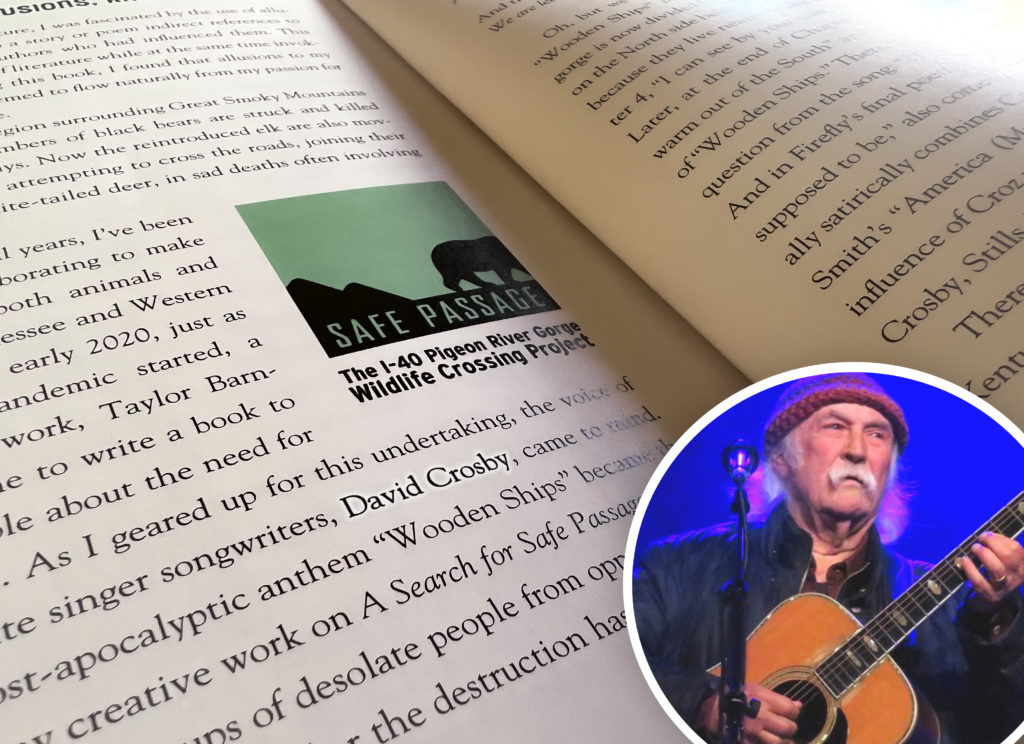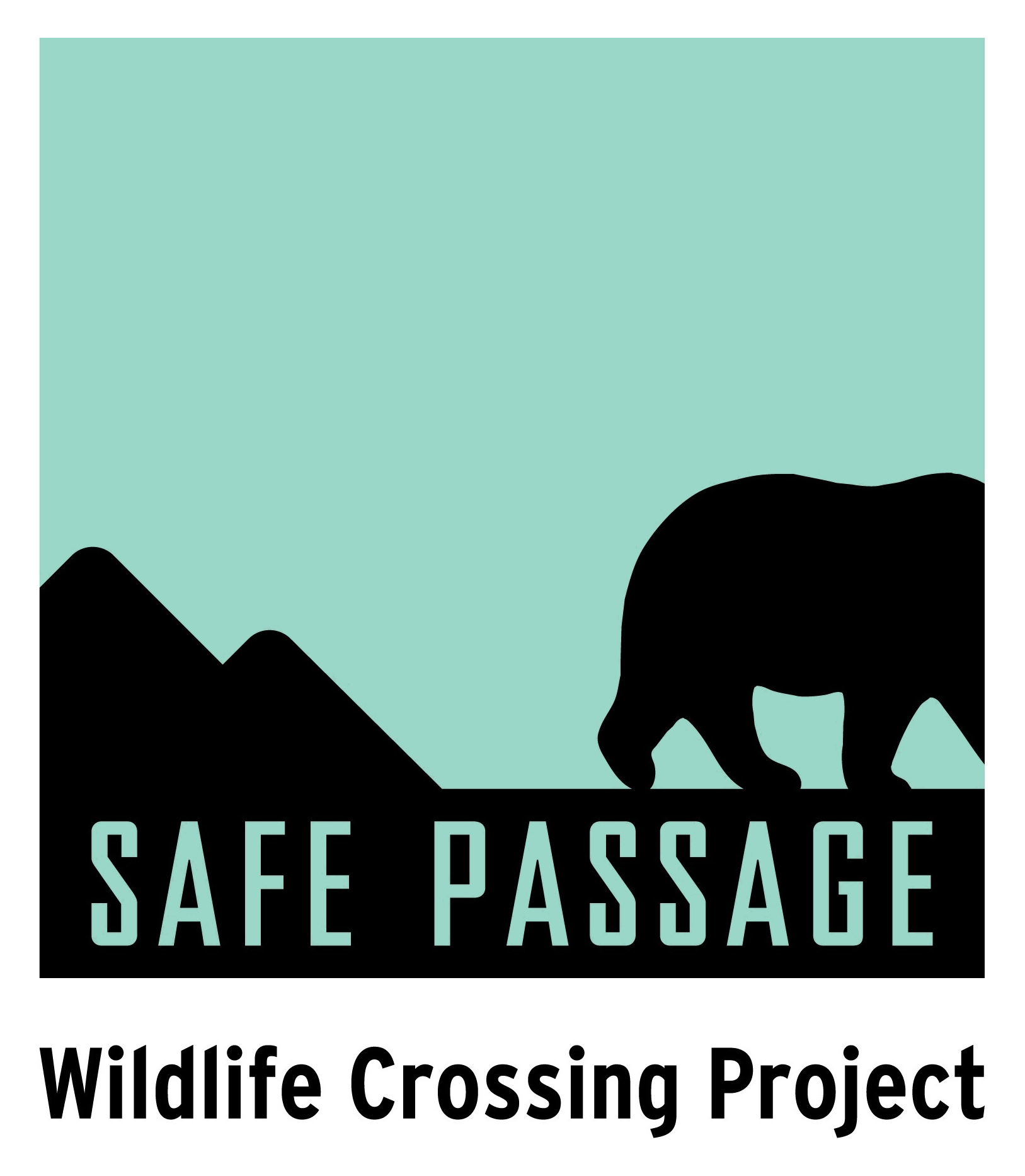Legendary singer-songwriter David Crosby passed away on Jan. 19, 2023, at age 81. In addition to his solo career, he was a founding member of both the Byrds and Crosby, Stills and Nash (and sometimes Young).
Crosby’s music influenced Great Smoky Mountains Association’s creative director Frances Figart in writing the award-winning title “A Search for Safe Passage.” Set in a microcosm of the Pigeon River Gorge and featuring 19 species that collaborate to find a safe way to cross the road, the book is geared for young readers but offers a plethora of humor and significance for adults who love literature and music.
“David Crosby’s haunting post-apocalyptic anthem ‘Wooden Ships’ became the soundtrack for my creative work,” Figart (which rhymes with Tiger) writes in an essay about her influences that appears at the end of the book. In the song, two groups of desolate people from opposite sides of a war encounter each other after the destruction has rendered them weak and nearly dead—and some don’t even know who won!
“The song began to represent for me a dreadful future when we have lost our iconic Appalachian species to our own blindness and apathy—a time when humans would say to the few remaining individual bear, deer, and elk:
Horror grips us as we watch you die
All we can do is echo your anguished cries
And the animals would reply:
We are leaving, you don’t need us.
Oh, but we do need them!”
“A Search for Safe Passage” alludes to “Wooden Ships”in several ways.
Since the animal territory in the gorge is now divided by the highway into the North and South, those on the North side believe that the ones in the South have shinier coats because they live nearer to the river. So, Deer says to Bobcat in Chapter 4, “I can see by your coat, my friend, you’re from the other side.”

Later, at the end of Chapter 6, Hawk catches “a fair wind blowing warm out of the south” and “sets a course” like the narrator at the end of “Wooden Ships.”
Then, in Chapter 7, Skunk asks Opossum a famous question from the song: “Hey, can I have some of your purple berries?”
And in Firefly’s final poem, the lines “free and easy,” and “the way it’s supposed to be,” also come from “Wooden Ships.” Firefly’s poem actually satirically combines Crosby’s lyrics with some from Samuel Francis Smith’s “America (My Country, ‘Tis of Thee).”
Figart finally alludes to the influence of Croz with the moniker “Human Highway,” the name of a Crosby, Stills, Nash and Young album that was never published.
“David was one of my many muses, and his voice never faltered even as he made four solo albums in his 70s,” she said. “Many will miss him, and his spirit and influence will live on in the music that captivated several generations.”
You can purchase the book here to read more about wildlife crossings as well as Figart’s creative influences and allusions.
